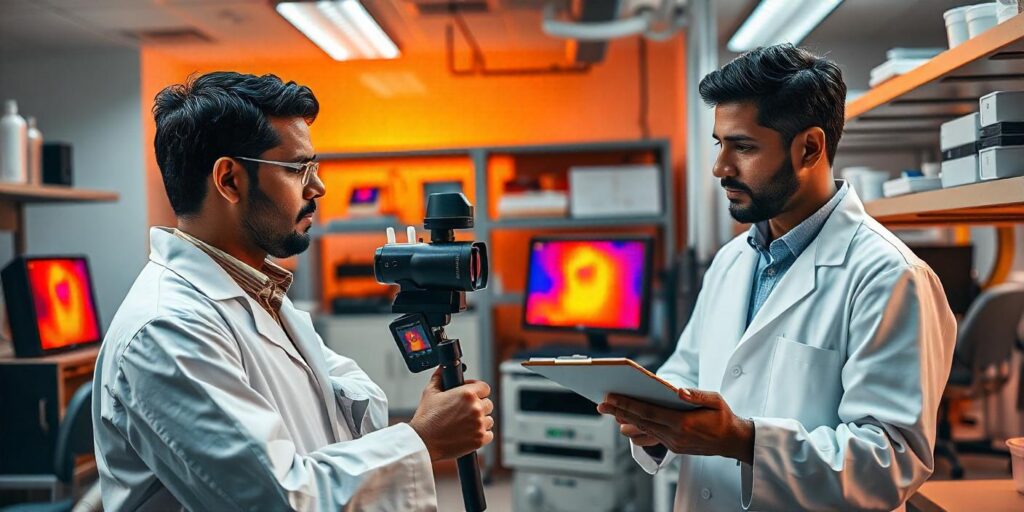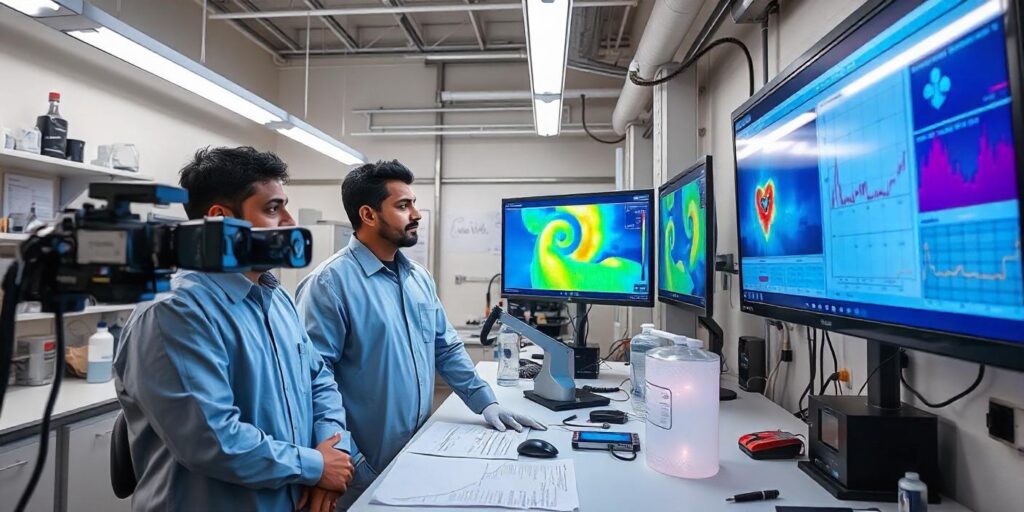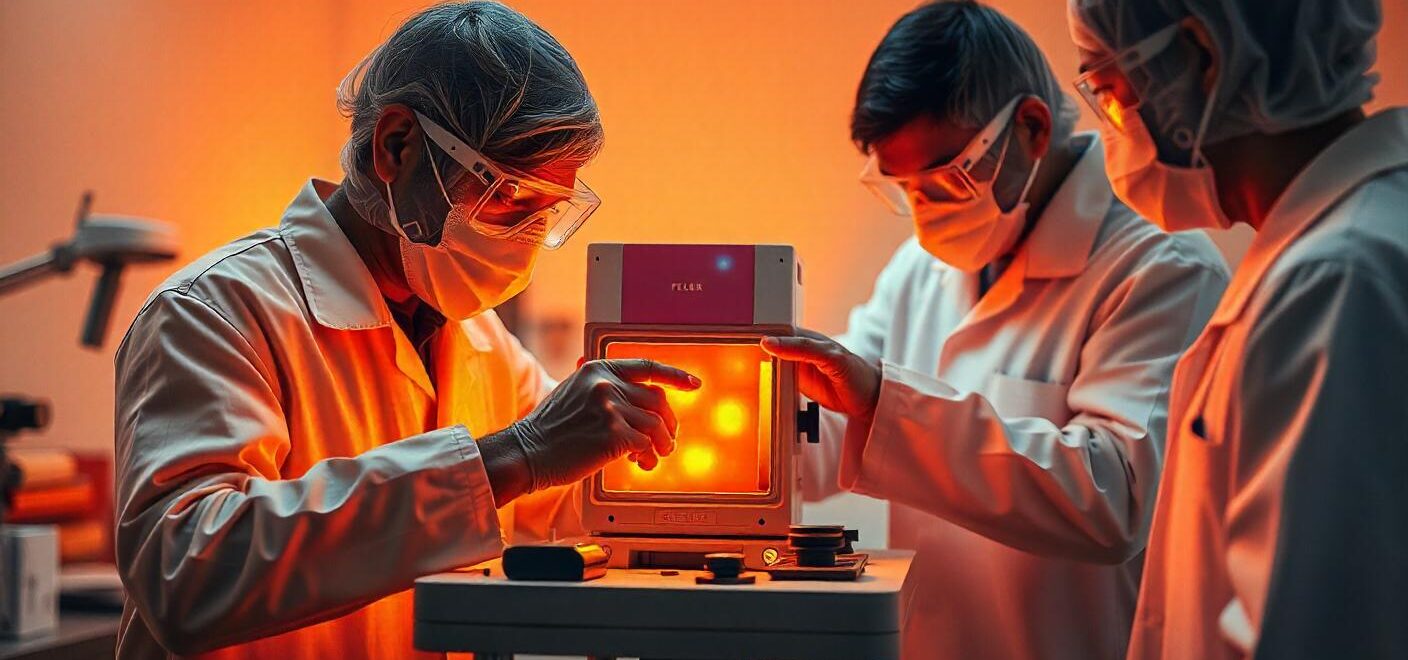Thermal validation is a critical process in industries such as pharmaceuticals, biotechnology, food production, and medical devices. Choosing the right thermal validation equipment is essential to ensure compliance with regulatory standards, maintain product quality, and optimize operational efficiency. With various options available in the market, organizations must carefully evaluate several key parameters before making a selection. Investing in the right equipment can help mitigate risks, enhance data accuracy, and streamline validation processes.
In this blog, we will explore the five key parameters that should be considered when selecting thermal validation equipment to ensure optimal performance and compliance.
1. Accuracy and Precision
The accuracy and precision of thermal validation equipment are crucial for ensuring reliable data collection and analysis. The equipment must provide consistent and repeatable measurements within the required tolerance levels.
Key considerations:
- Measurement tolerance: Ensure the equipment meets industry standards for accuracy, such as ±0.1°C or better.
- Sensor calibration: Verify if the equipment allows for regular calibration to maintain accuracy over time.
- Environmental impact: Assess how external factors like humidity and pressure affect the device’s readings.
Selecting equipment with high accuracy and precision helps avoid deviations that could lead to compliance issues and product quality failures.
Read More: Thermal Validation: 8 Critical Regulatory Standards You Must Know
2. Compliance with Regulatory Standards
Thermal validation equipment must comply with stringent regulatory guidelines set forth by agencies such as the FDA, EMA, and ISO.
Key compliance standards to consider:
- FDA 21 CFR Part 11: Ensuring data integrity, electronic signatures, and audit trails.
- EU GMP Annex 15: Compliance with qualification and validation requirements.
- ISO 17025: Calibration and testing laboratory standards for equipment accuracy.
- ICH Q9: Risk management considerations in validation processes.
Equipment that meets regulatory requirements ensures that validation activities are audit-ready and meet the highest quality standards.
3. Data Logging and Reporting Capabilities
Efficient data logging and comprehensive reporting capabilities are essential features of modern thermal validation equipment. The ability to collect, store, and analyze large volumes of data ensures smooth operations and facilitates regulatory audits.

Key features to evaluate:
- Real-time monitoring: Equipment should provide real-time data visualization and alerts.
- Automated reporting: Look for systems that generate reports automatically in compliance with regulatory formats.
- Data storage capacity: Ensure the system can store large datasets for long-term analysis.
- Software compatibility: The equipment should integrate with existing enterprise systems for seamless data management.
Advanced data logging features ensure transparency, traceability, and ease of compliance reporting.
Read More: Top 10 Challenges in Thermal Validation and How to Overcome Them
4. Flexibility and Scalability
As business operations evolve, the selected thermal validation equipment should offer flexibility and scalability to accommodate future growth and diverse applications.
Key aspects to assess:
- Modular design: Allows for expansion by adding new sensors or modules.
- Wide application range: The equipment should be suitable for various validation processes such as sterilization, freeze-drying, and storage.
- Portability: Evaluate whether the equipment can be easily transported to different validation sites.
- User-friendly interface: Ensure the system is easy to configure and operate for different user levels.
Scalable equipment helps future-proof the organization against evolving validation needs and regulatory changes.
5. Reliability and Maintenance
Reliability is a crucial factor to consider when selecting thermal validation equipment. Downtime due to equipment failure can disrupt operations and result in compliance issues.
Key factors to review:
- Durability: Evaluate the build quality and resistance to harsh environmental conditions.
- Maintenance requirements: Assess the frequency of servicing and ease of maintenance.
- Technical support: Ensure the manufacturer offers reliable customer support and training.
- Warranty and service agreements: Consider the warranty terms and available service contracts.
Choosing equipment from a reputable manufacturer with a proven track record enhances reliability and minimizes operational risks.
6. User Training and Support
Even the most advanced thermal validation equipment is only as effective as the team using it. Proper user training and ongoing support are critical to maximizing the equipment’s potential.
Key aspects to consider:
- Training programs: Availability of comprehensive training modules for different experience levels.
- User manuals and documentation: Clear and detailed guidelines for easy reference.
- Technical support availability: 24/7 support services to address potential issues quickly.
- Software updates and upgrades: Ensure ongoing support for software improvements and regulatory changes.
Investing in equipment with robust training and support ensures long-term efficiency and minimizes the risk of operational errors.
Read More: Thermal Validation: 5 New Cutting-Edge Technologies
Conclusion
Selecting the right thermal validation equipment is a crucial investment that impacts regulatory compliance, product quality, and operational efficiency. By evaluating the five key parameters – accuracy and precision, regulatory compliance, data capabilities, flexibility, and reliability – organizations can make informed decisions that align with their specific needs and long-term objectives.
How Incepbio Can Help
At Incepbio, we understand the complexities involved in thermal validation and offer a range of cutting-edge solutions tailored to meet your requirements. Our expert team can assist you in selecting the right thermal validation equipment by providing:

- Comprehensive product evaluations to match your operational and regulatory needs.
- Calibration and maintenance support to ensure long-term equipment accuracy.
- Training programs to equip your team with the knowledge required to operate equipment efficiently.
- Regulatory compliance consultation to ensure audit readiness and adherence to global standards.
Contact Incepbio today to discover how we can support your thermal validation journey with industry-leading expertise and solutions.
Authors
-

-

An experienced SEO professional, Adithya is someone fascinated by the art of content creation. He has published over 700 articles under his name. Additionally, he has worked for companies like TCS, Essentially Sports, and holds expertise in the field of digital marketing
View all posts -

Arjun Jha has over 8 years of experience in tech startups, business strategy, and digital and traditional marketing. He’s helped many startups grow by using creative strategies and a deep understanding of the market. Outside of work, Arjun enjoys reading about business, philosophy, psychology, and spirituality, which inspires his unique approach to problem-solving and growth.
View all posts






